Kyle Marple
Improving Adherence to Heart Failure Management Guidelines via Abductive Reasoning
Jul 16, 2017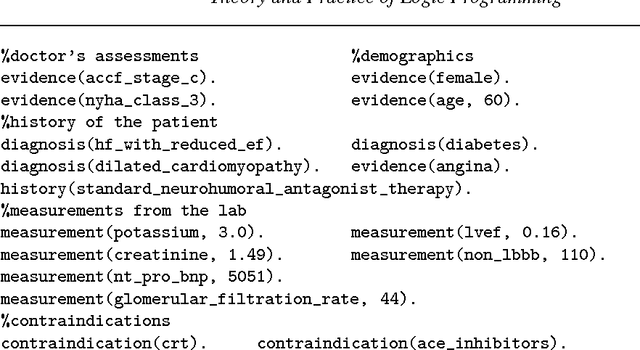
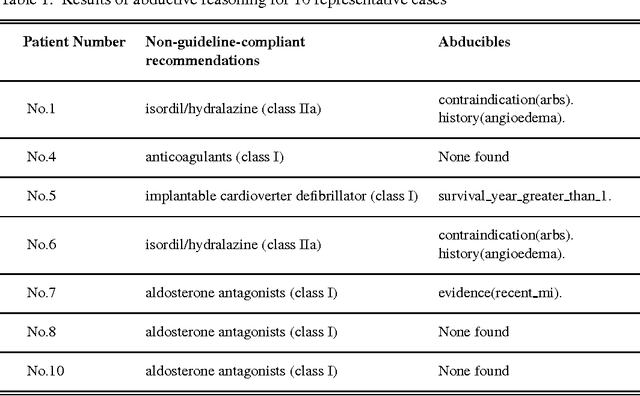
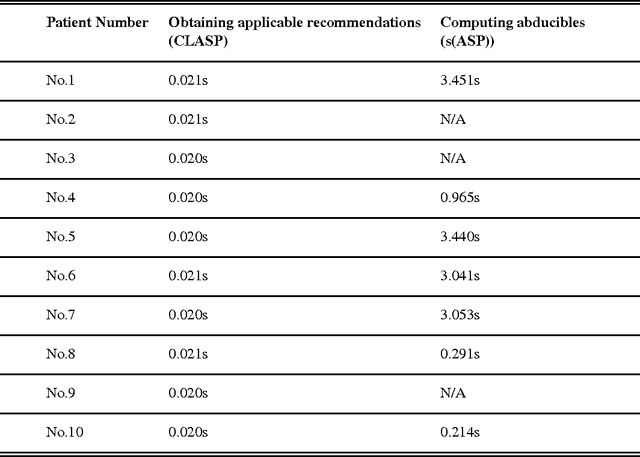
Abstract:Management of chronic diseases such as heart failure (HF) is a major public health problem. A standard approach to managing chronic diseases by medical community is to have a committee of experts develop guidelines that all physicians should follow. Due to their complexity, these guidelines are difficult to implement and are adopted slowly by the medical community at large. We have developed a physician advisory system that codes the entire set of clinical practice guidelines for managing HF using answer set programming(ASP). In this paper we show how abductive reasoning can be deployed to find missing symptoms and conditions that the patient must exhibit in order for a treatment prescribed by a physician to work effectively. Thus, if a physician does not make an appropriate recommendation or makes a non-adherent recommendation, our system will advise the physician about symptoms and conditions that must be in effect for that recommendation to apply. It is under consideration for acceptance in TPLP.
A Physician Advisory System for Chronic Heart Failure Management Based on Knowledge Patterns
Oct 25, 2016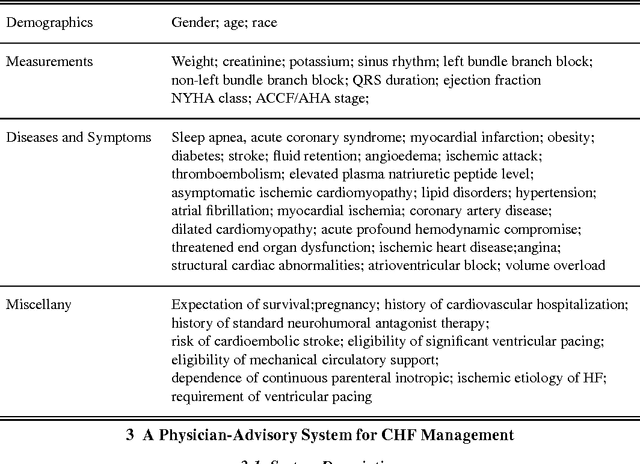

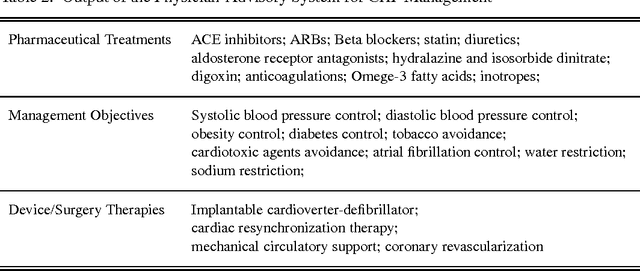
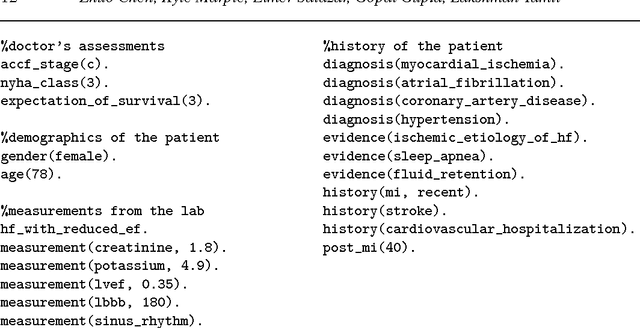
Abstract:Management of chronic diseases such as heart failure, diabetes, and chronic obstructive pulmonary disease (COPD) is a major problem in health care. A standard approach that the medical community has devised to manage widely prevalent chronic diseases such as chronic heart failure (CHF) is to have a committee of experts develop guidelines that all physicians should follow. These guidelines typically consist of a series of complex rules that make recommendations based on a patient's information. Due to their complexity, often the guidelines are either ignored or not complied with at all, which can result in poor medical practices. It is not even clear whether it is humanly possible to follow these guidelines due to their length and complexity. In the case of CHF management, the guidelines run nearly 80 pages. In this paper we describe a physician-advisory system for CHF management that codes the entire set of clinical practice guidelines for CHF using answer set programming. Our approach is based on developing reasoning templates (that we call knowledge patterns) and using these patterns to systemically code the clinical guidelines for CHF as ASP rules. Use of the knowledge patterns greatly facilitates the development of our system. Given a patient's medical information, our system generates a recommendation for treatment just as a human physician would, using the guidelines. Our system will work even in the presence of incomplete information. Our work makes two contributions: (i) it shows that highly complex guidelines can be successfully coded as ASP rules, and (ii) it develops a series of knowledge patterns that facilitate the coding of knowledge expressed in a natural language and that can be used for other application domains. This paper is under consideration for acceptance in TPLP.
 Add to Chrome
Add to Chrome Add to Firefox
Add to Firefox Add to Edge
Add to Edge